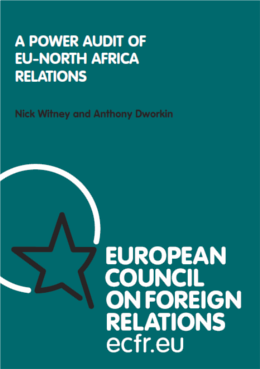Navigating Egypt’s political crisis
Understanding the contours of Egypt's most acute political crisis since President Hosni Mubarak was deposed two years ago.
Understanding the contours of Egypt's most acute political crisis since President Hosni Mubarak was deposed two years ago.
Did Israel's “Operation Pillar of Defense” change the politics of the Middle East? Who are the winners and losers of the Gaza conflict – and what's next after the Israel-Hamas ceasefire?
What was the assessment that prompted Israel's operation in Gaza and what might that tell us about its intended outcome and trajectory? Of course the timing can be explained with the approaching elections in Israel. But that is only part of the story.
The outcome of the uprisings in North Africa is still in the balance and although it will be mainly up to the North Africans themselves to decide their future, Europe has a key role to play on the side of reform – especially Paris, Rome and Madrid.

North Africa should be a top strategic priority for Europe
The Brussels visit of Egypt’s first democratically elected president Mohammed Morsi is a striking reminder of the changes that have swept the Arab world in the last 18 months. Europe should not miss a historic opportunity to rebuild relations with the most important country in the region.
Cairo and Tehran are talking to each other: Iran because it is increasingly isolated, Egypt because it is attempting to reclaim the mantle of regional leadership. Is this an example of Egypt's new foreign policy under Mr Morsi?
Against the backdrop of Egypt's presidential elections, the Supreme Council of the Armed Forces (SCAF) staged a coup d’etat. For Europe, this counter-revolution constitutes a test of whether we have truly learned the lessons of the Arab uprisings.
Ahead of the second round of Egypts's presidential elections, Elijah Zarwan is in Cairo and takes a closer look at the Brotherhood and the Military – the two dominant forces in Egypt's unfolding drama.